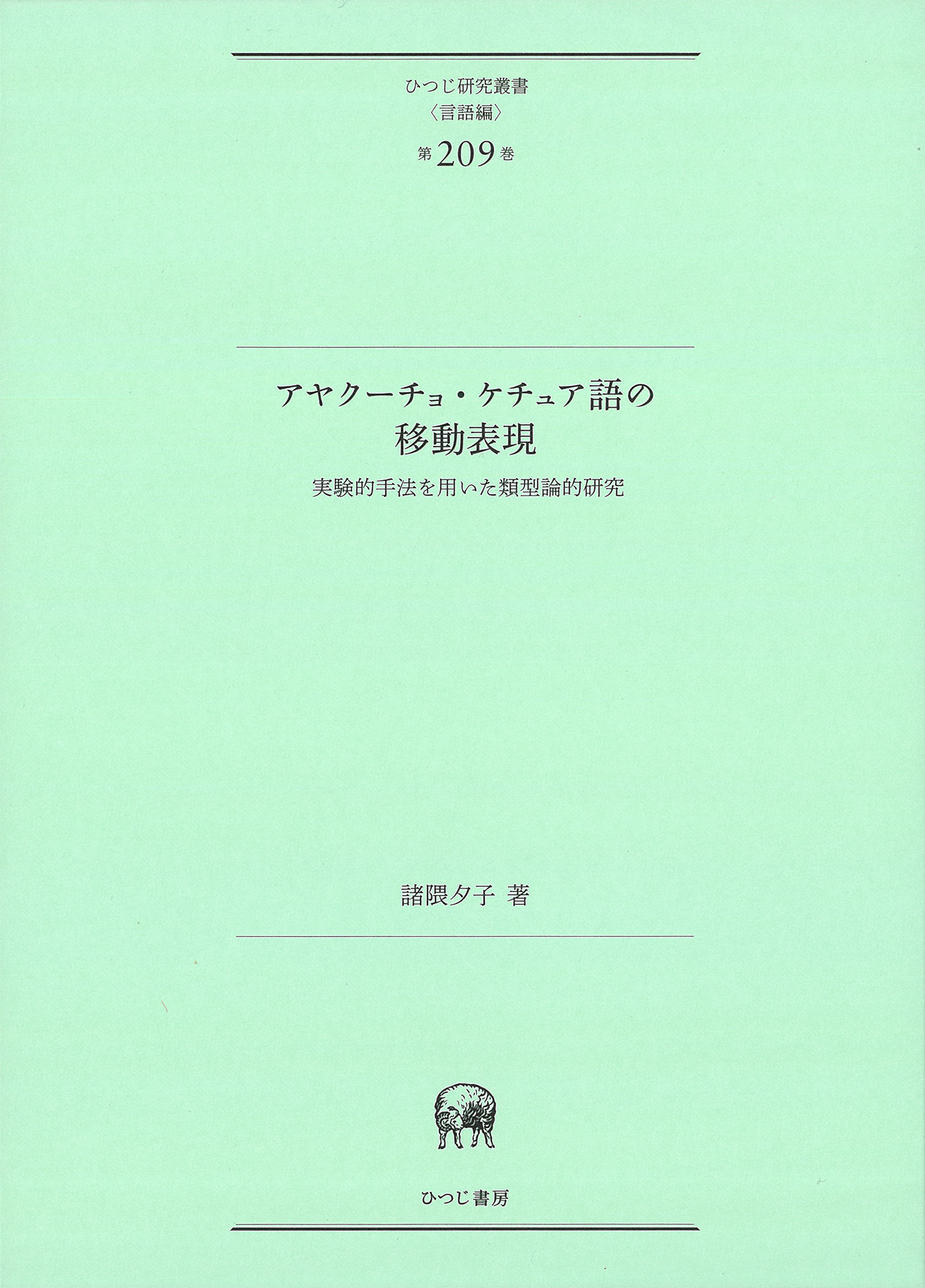
Title
Hituzi Research Series (Linguistics), Volume 209 Kechuago Ayakucho Hougen no Idohyogen (Motion Event Descriptions in Ayacucho Quechua: Typological Study Using Experimental Methods)
Size
316 pages, A5 format
Language
Japanese
Released
February, 2025
Published by
Hituzi Syobo
Book Info
See Book Availability at Library
Japanese Page
The theme of this book is the grammatical description of Quechua, focusing on motion event descriptions. Quechua is a generic term for the languages of the Quechuan family, which are the indigenous languages spoken in the Andean region of western South America. Today, Quechua serves as the second Lingua Franca, following Spanish, in this region and has emerged as an essential symbol of indigenous identity. Quechua has gained academic attention as a mediating language, particularly in Andean studies in Japan. Additionally, many Andean music enthusiasts are interested in Quechua and its culture.
This book outlines the grammar of the Ayacucho Quechua (ISO 639: quy), a regional variant of Quechua, and comprehensively describes its expressions of motion events. On the one hand, motion events, such as walking, going up, and falling, are familiar phenomena, and their verbal expressions are essential and used daily across languages and cultures. On the other hand, the means to express these motion events, including the use of unique verbs, prepositions, or affixes, differ across languages and present interesting typological aspects. (Indeed, Japanese and English differ significantly in this aspect.)
Recent developments in survey and analysis techniques have led to successive publications in this research field, both domestically and internationally. I anticipate that the publication of this book represents a step forward in this trend. Furthermore, this is the first book published in Japan to provide both an overall view of Quechua grammar and a comprehensive description of its motion event expressions. I would appreciate it if this book contributed not only to linguistics but also to Andean studies and cross-cultural exchanges in Japan.
In this book, I argue the following three typological features of movement expressions in the Ayacucho Quechua: i ) This language has a pronounced tendency to express the path, which refers to the trajectory of the moving object, simultaneously (that is to say, redundantly) with the main verb and other elements; ii) Motion event expressions in this language display different characteristics depending on the way of moving: self-controlled movement, movement caused by something, and fictive movement; iii) Motion event expressions in this language present different characteristics depending on the type of the path, such as “up” and “down.”
Additionally, I present the following three points as individual linguistic features of this language. i ) In Ayacucho Quechua, the high grammaticality of path-marking expressions corresponds to a broader range of path types for which they are employed. ii) The verb pasa, “to pass,” can express a broader range of path types than other verbs expressing paths. iii) The verb suffix -yku can be used to express a wide range of paths, not limited to “into” and “down,” as previously suggested.
The preceding description and analysis derive from fieldwork using experimental methodologies shared in Motion Event Description across Languages, an international collaborative research project on motion event expressions. This method enables the characterization of Ayacucho Quechua while clarifying the context in which each expression is used, comparing it with other languages from a unified perspective, and comprehensively and systematically discussing its typological characteristics for the first time worldwide.
(Written by: MOROKUMA Yuko / September 29, 2025)
Related Info
The 5th UTokyo Jiritsu Award for Early Career Academics (The University of Tokyo 2024)
https://www.u-tokyo.ac.jp/ja/research/systems-data/n03_kankojosei.html




 eBook
eBook